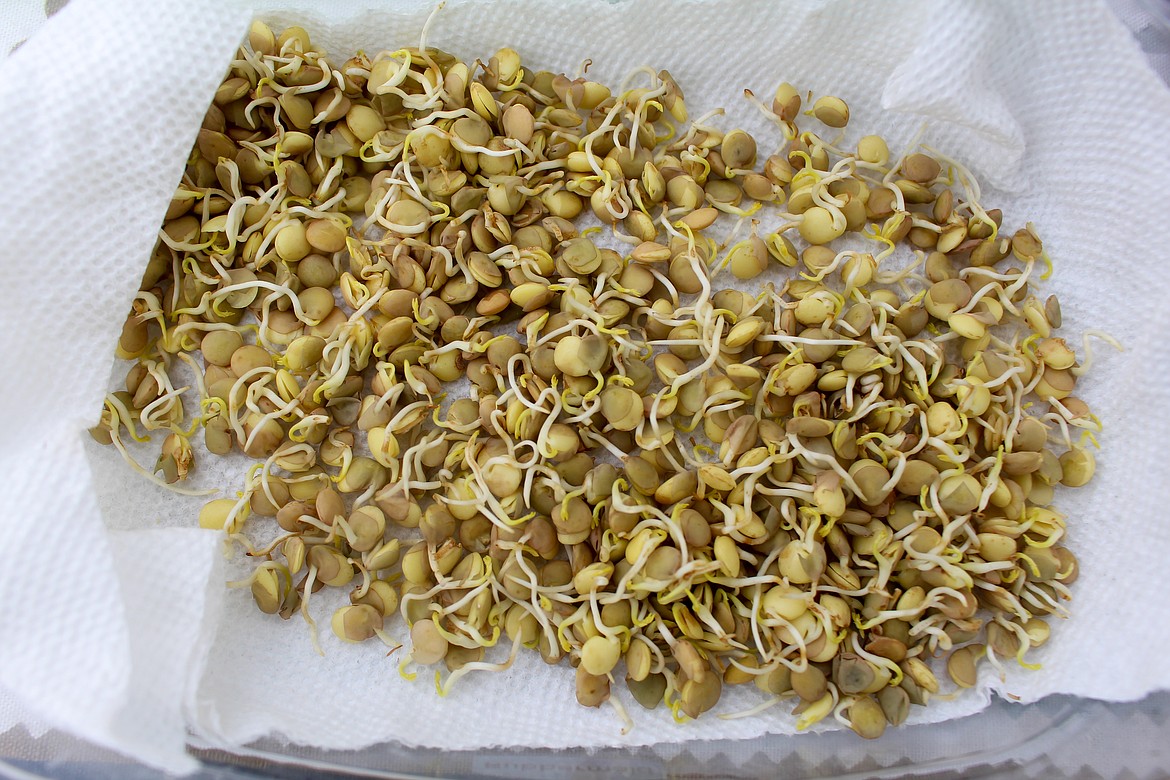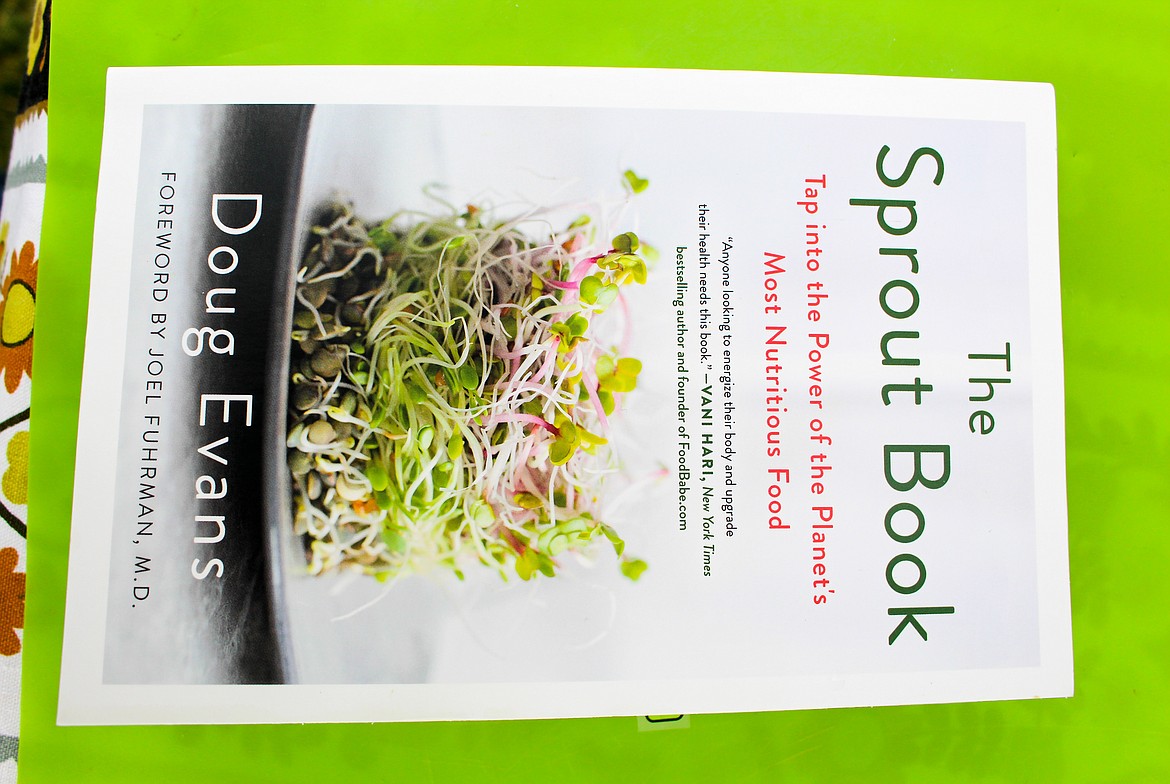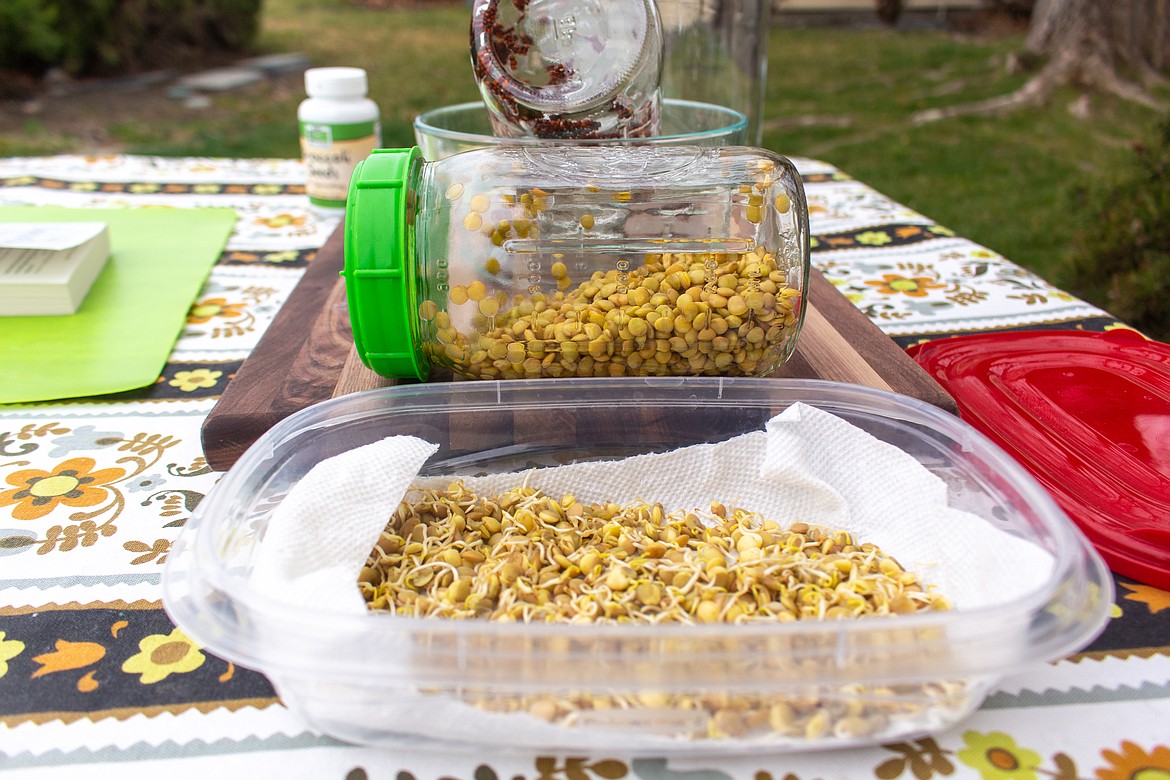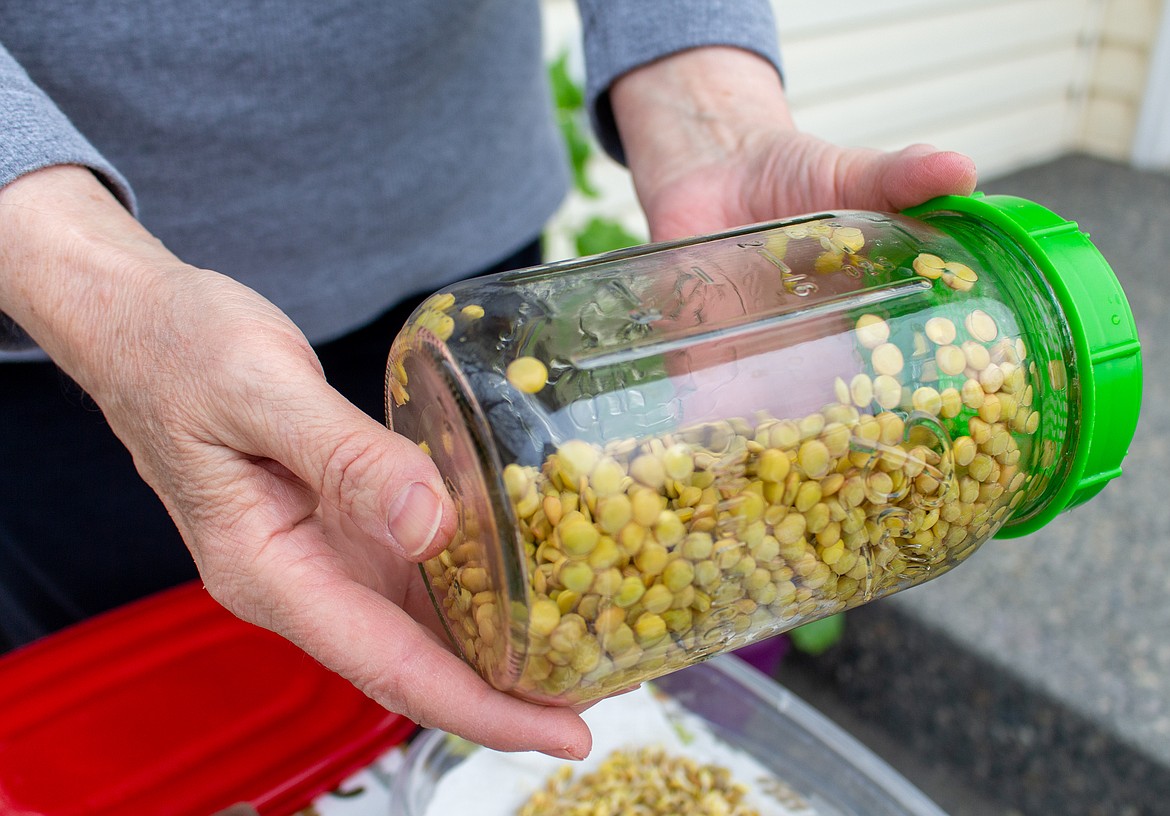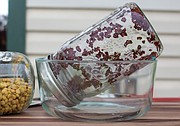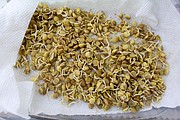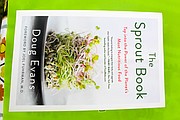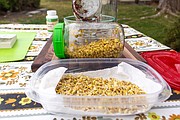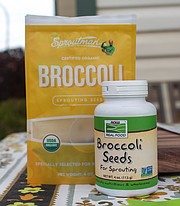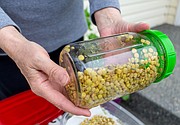Growing sprouts at home: Moses Lake woman learns techniques for health benefits
With COVID-19 still hanging around more than a year after it first surfaced in Washington, now is as good a time as any to boost your immune system. Sprouting can be a great way to achieve that, and it doesn’t require a plethora of gardening knowledge or even a backyard.
As an older community member, Donna Whitehall, of Moses Lake, said her concerns about ending up on a ventilator if she contracted the virus led her to find some ways at home to boost her immune system.
It didn’t take long after starting her research to land on sprouting, which involves inducing the germination process in seeds, nuts, grains, beans or legumes. This process can vastly increase the nutrients of the seed and resulting sprouts, in addition to making it easier for the body to absorb nutrients.
Whitehall said her research started with YouTube videos and eventually led to her buying a book called simply, “The Sprout Book,” by Doug Evans.
While her mother had “the greenest of thumbs,” Whitehall said she isn’t much of a gardener, other than a small garden she kept at her family home in Wenatchee years ago.
But, she said she quickly learned the sprouting process is something anyone can do.
Whitehall said she started out with broccoli sprouts for the beneficial amounts of sulforaphane the sprouts contain, which can help reduce the risk of disease, respiratory issues and help boost antioxidant capacity.
“It takes about 10 days to get them from seeds to a tiny super plant, a little sprout with a good little tail on it,” Whitehall said.
For growing sprouts, Whitehall said she has two clear jars of different sizes and ordered some screen lids online to put on the top.
She said she puts a couple tablespoons of seeds into the jar, an ounce at most, and adds filtered water. She goes with filtered water to avoid any unwanted chemicals, she said. Whitehall said she bought filtered water at a grocery store when starting out.
Most guides for sprouting recommend three parts water to one part seed when starting seeds in a container.
After letting the jars sit overnight, she drains the water from the jar through the filtered lid and rinses off the seeds with more water.
She then sits the jar in a slightly inverted position to drain excess water and repeats the rinsing process twice a day.
“Do that for seven to 10 days, rinse it and shake the jar so the seeds kind of spread out, and then sit it on an angle so that the seeds aren’t in the water,” Whitehall said.
Seeds vary in how long they take to be ready for consumption, with lentil sprouts taking Whitehall only a few days and broccoli sprouts taking a little longer.
Once the tails are about 1 1/2 to 2 inches in length, the sprouts should be ready to go.
“Once they’re ready, you can eat them right there,” Whitehall said. “Or, if you want them green for salad, you can sit them out in the sun for like 15 minutes and then they’ll green up as the photosynthesis takes effect.”
Lentil sprouts, Whitehall said, she loves growing the most.
The resulting sprouts can be frozen and stored away, but only have a short shelf life.
Sprouts are often one of the more frequently recalled items at grocery stores due to the growing condition lending itself to the potential production of some harmful bacteria. Fortunately, that risk is significantly lower when raised in smaller quantities, and there is little risk, as long as individuals are careful about the process.
Some sprouts, such as kidney bean sprouts, must be cooked before consuming to avoid risks of harmful side effects.
“I’ve never had any problem with my own sprouts,” Whitehall said. “The thing you want to make sure is just rinse them well and drain as much water as possible. Spread the seeds out and tip the jar so that any extra moisture can drain out.”
She said storing the sprouts somewhere warm might also lead to some issues. She said she keeps her sprouting jars in the kitchen with a small towel draped over them.
The variety of seeds, beans and legumes that can be sprouted is immense.
“There’s so many things you can sprout that I didn’t even know you could,” Whitehall said.
Whitehall said she ordered a lot of her sprouting seeds from an online vendor, Sproutman, and has also obtained some seeds at Settler’s Natural Market locally.
Sprouting seeds at home can save a lot of money, Whitehall said.
While she said she’s tapered off on her sprouting campaign somewhat after getting her COVID-19 vaccination, Whitehall still had a few jars of seeds sprouting away in her kitchen in Moses Lake.
Whitehall laughed as she explained if she can learn how to grow sprouts herself at her age, anyone can.





